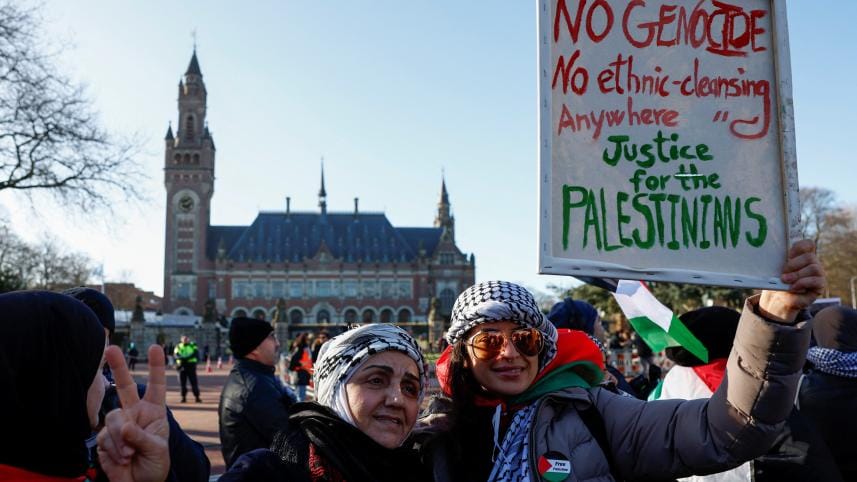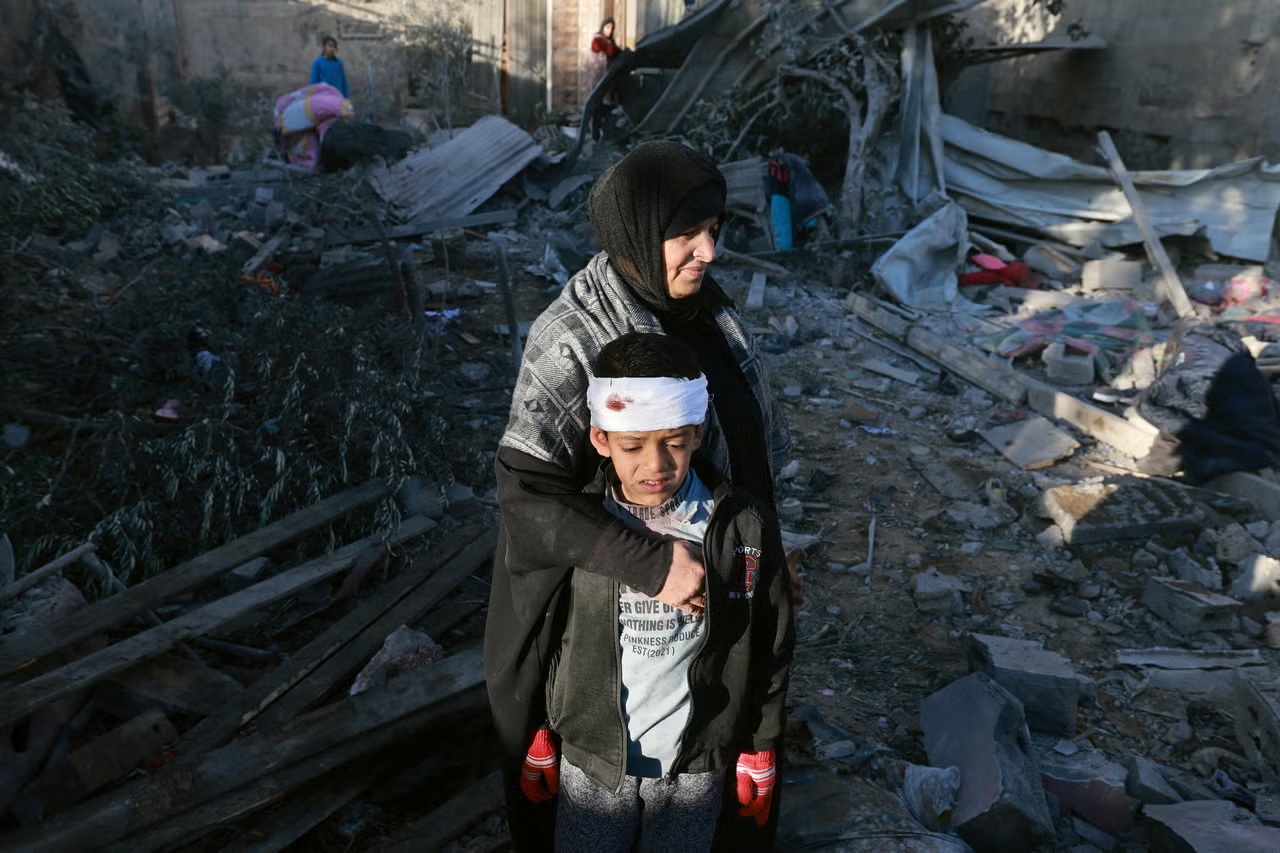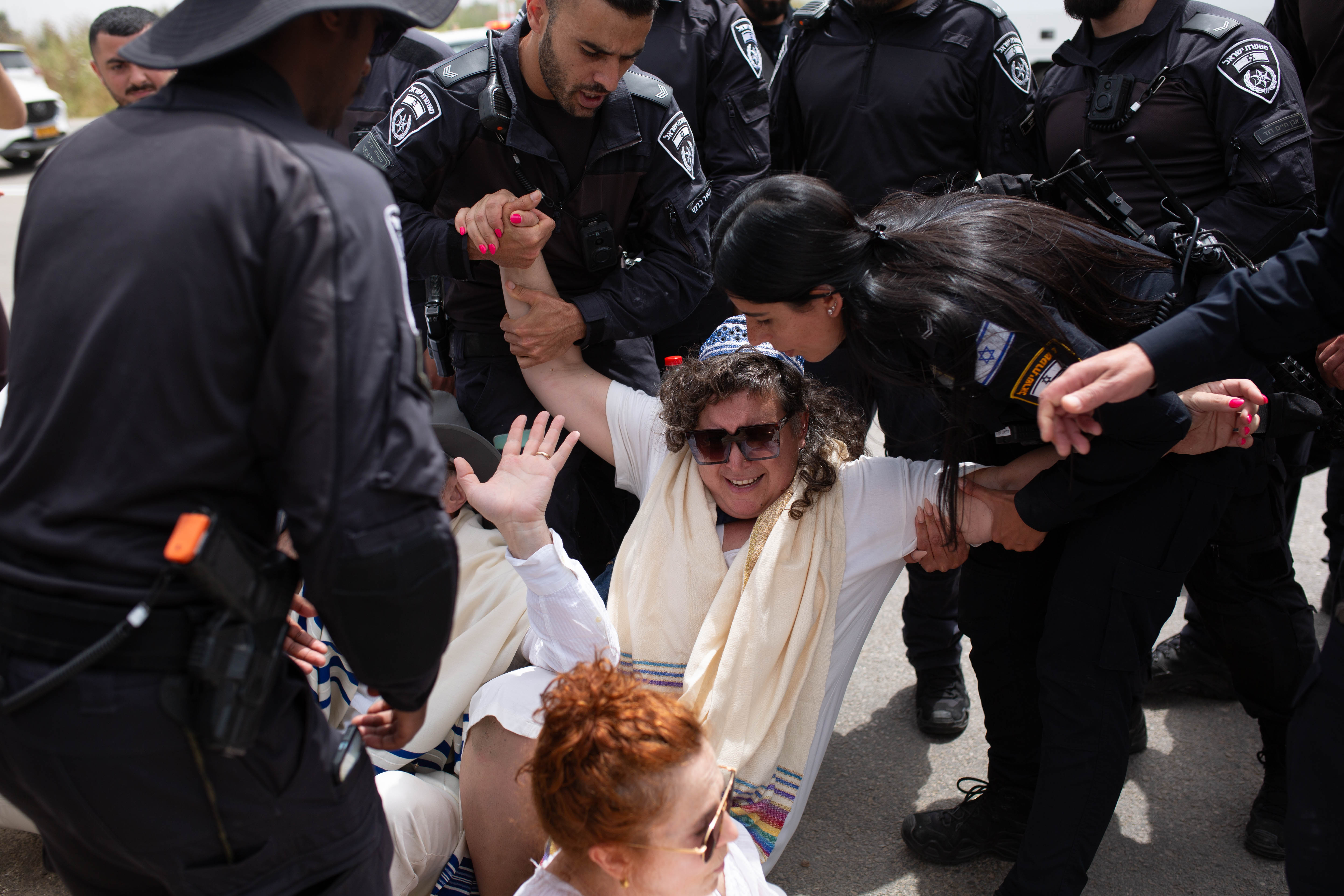We are not just bystanders in the colonial space

Seven months into the wave of devastation and death orchestrated by the state of Israel in Gaza and broader Palestine, we witness that the arc of moral universe bends towards injustice. There is no possible scenario of redemption for Israel. The rupture in Gaza does not compare to the Allied carpet bombing of German cities during World War II, as noted by American political scientist and scholar of Israel-Palestine conflict, Norman Finkelstein. This is the worst humanity is capable of. The excuse of Hamas and hostages in continuation and expansion of the assault is too old now. Hostage families are down in the streets of Tel Aviv denouncing Netanyahu. Bibi is under pressure from his own administration for having no post-war strategy, perhaps because he does not plan on stopping the war any time soon.
The occurrence of justice is rare, perhaps only limited to the plea of a utopia, or script of a play or of an idealised past. As we lament, a high-tech and well-oiled genocide unfolds. Our activism, protests, encampments do make a difference, we are doing what we can. But we can also see what behemoth state and commercial establishments are capable of and how they can use their amassed power and capital for destruction. By default, they are not answerable to anyone. A lot of our actions are symbolic at best. But the optics of visible solidarity for Palestine is important because it shows that the world is witnessing and recording this blatant act of outright dehumanisation.
People's behaviour on social media have changed, protest of different forms has become part of the quotidian life. Although we hear what we want to hear and see what we want to see as the content gets curated based on our choice and behaviour online, social media has also become a battleground for words and a place to interact with netizens with opposing views. It does not do much and people are still confined to their own general views, but more and more people are activated to be open about their political views. We have seen how sanitised version of atrocities have been presented to guide public behaviour and how people latch on to the first piece of information that they are exposed to, how prophecies are utilised as tools for political gains and how authoritative texts are used to confirm our pre-existing inclinations.
Donation and advocacy have been some of the ways powerless global citizens have been galvanised to contribute to the cause of justice. Palestinian justice is global justice, it is justice for all because the axis of power, extraction and exploitation involved in this seven decades long struggle for basic human dignity is the same axis responsible for sustained imperial projects around the world. The systems of injustices are intertwined. Connecting our present to our colonised past does not absolve our "third world" nations from their corruption and horde of other problems, but as we address what is wrong with us today, we must recognise that these systems, divisions, extremism are the legacies and symptoms of the colonial projects.
Israel has been allowed to operate beyond international rules and norms for so long that we are accustomed to it seeking retribution, which entails taking thousands of Palestinian lives. The rules created by the "West" are no longer catering to its needs. Right after giving a mild threat of withholding arms as Rafah came under fire, the US planned for a $1 billion arms sale to Israel. America's strategic relation with Israel is complicated by staunch pro-Israel lobbying and zealous prophecies that are central driving force of American politics and foreign policy.
The Biden administration is ever ready to express condolence, but its advice or threat does not hold much weight in the grand scheme of the catastrophic war that has been enabled by the same administration. Superpower nations can create a need and then drop aid into the ocean and bemoan when the aid recipient dies trying to retrieve the aid. But they would not want the aid recipient or the client state to be powerful enough to dictate decision making. Some form of dependency is desired. Superpower nations require help-seekers; therefore, powerlessness is a created situation. Fear of non-existence does not justify the annihilation of any people. There are of course, economic interests in Gaza, so Israel is expanding under the pre-cursor and pretence of defending itself. But as we see, it does not matter what is justified and what is not, in the end who has the power dictates the verdict of the day and determines the outcome.
Whatever movements have happened, have happened because of the power of the global public opinion, ultimately expressed through purchase power and voting behaviour. But it takes massive amount of collective effort to make the slightest movement. The power lies in the collective, which also leaves chances for free riding. Not doing anything is safer, but would we rather be safe, or would we rather be right?
The damage is unquantifiable, and no courts can instil justice. As powerless bystanders we still fight, but we don't fight for the Palestinians, we fight for ourselves. And as we fight, we need to be critical of ourselves, recognise and use our privilege, and be aware that regardless of the limited impact we make, we must speak, write, move and show up, because that is the right thing to do.
The death and destruction that is required to keep Israel secure does not fit into the utilitarian logic that is often championed by the superpowers. As bystanders and allies, we must be able to see establishments for what they are and what they choose to support and benefit from beyond the logic and rhetoric they use. Being the nice liberal is not good enough and theorising loss is a selfish act when it becomes an end in itself. We must realise finally that every opportunity cost and every life lost in wars are valuable. Men are accepted as targets of aggression and collateral damage. But there is nothing righteous about targeting men. A war on men is a war on women, a war on men is a war on children. If the injustice inflicted upon Palestinians can teach us anything, it is that injustice always starts with an excuse and a rhetoric and an action we deem acceptable.
The powerless bystander can generate power within their community, motivate others to speak up and identify the otherwise "harmless" agents of power that support the genocide—this is why boycotting companies and blocking celebrities have been easy and key tools in the action repertoire. Financial institutions around the world are under pressure to reduce their stakes in Israeli companies and defence contractors. As Gaza has lost major infrastructure, initiatives are emerging to set up remote schools for example—that is the type of space where power can be found. The point is to recognise the different manifestations and magnitudes of the same injustice and not limit the fight for what is right to one war.
Sarzah Yeasmin is a Boston-based Bangladeshi writer. She works at Harvard Kennedy School and is currently pursuing a micro-master's in data and economics at Massachusetts Institute of Technology (MIT).
Views expressed in this article are the author's own.
We welcome your contributions and analysis of global events, and responses to our articles. To submit articles to Geopolitical Insights, please send an email to ramisa@thedailystar.net.
Follow The Daily Star Opinion on Facebook for the latest opinions, commentaries and analyses by experts and professionals. To contribute your article or letter to The Daily Star Opinion, see our guidelines for submission.




 For all latest news, follow The Daily Star's Google News channel.
For all latest news, follow The Daily Star's Google News channel. 


Comments